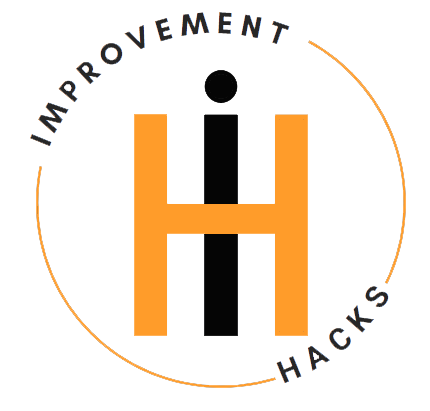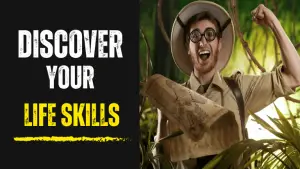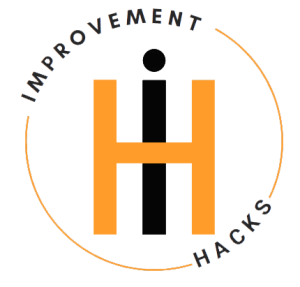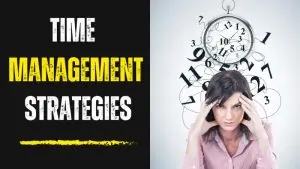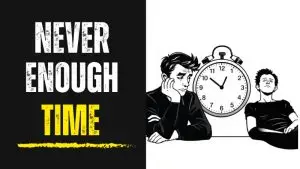Have you ever asked yourself why certain people seem to progress in life while others just struggle on regardless?
Or why the most intelligent people aren’t always the ones that are doing the leading?
It’s interesting to note that being intelligent is just a piece of the puzzle when it comes to success.
Another crucial aspect involves life skills, and these are a blend of mental and action-based abilities.
In this article, we’re going to dive into the world of life skills.
We’ll define what they are, give you a few examples, and explore ways to develop them to give you more chances for success.
Discovering Life Skills
Life skills are a special kind of ability that can help us handle everyday challenges and demands effectively.
You might also hear them called psychosocial skills because they involve both our minds and how we act.
They’re a mix of how we think, behave, and how we get along with other people.
Hodge, Danish, & Martin (2013) describe life skills as a mix of skills that help people succeed in different parts of their lives.
Types of Life Skills
According to Prajapati, Sharma, & Sharma (2017), life skills can be grouped into three main categories:
Thinking Skills: These include coming up with several solutions to a problem or thinking of new and creative ideas.
Social Skills: These skills are about building strong and healthy relationships, being able to communicate well, and interacting positively with others.
Emotional Skills: These are about feeling confident in who you are, managing your feelings well, and being able to understand yourself.
The Benefits of Life Skills
Studies have shown that learning and using life skills can lead to less use of drugs, alcohol, and tobacco.
They can also reduce aggression and violence (Botvin & Griffin, 2004).
But, the benefits of having life skills go beyond having just these effects.
They tend to make everyday life that little bit easier and more enjoyable.
When we can handle our emotions well and create lasting supportive relationships, we end up being a much happier and healthier person.
That’s why developing life skills isn’t just about achieving success; it’s also about our overall health and happiness.
Essential Life Skills
Leading organizations like UNICEF, UNESCO, and the WHO have identified a set of basic life skills that are essential for handling the ups and downs of daily life (Prajapati, Sharma, & Sharma, 2017).
These skills are not just standalone abilities but are interconnected, each supporting and enhancing the others.
Here’s a breakdown of these fundamental life skills:
Self-awareness: Knowing who you are, including your strengths, weaknesses, thoughts, beliefs, and emotions.
Critical Thinking: The ability to think clearly and rationally, understanding the logical connection between ideas.
Creative Thinking: Looking at problems and situations from a fresh perspective and thinking outside the box.
Decision Making: Choosing among different options and picking the best course of action.
Problem Solving: Finding solutions to challenges and hurdles you face.
Effective Communication: Sharing your thoughts and feelings in a way that others understand, and also listening to others.
Interpersonal Relationships: Building and maintaining positive connections with others.
Empathy: Understanding and sharing the feelings of others.
Coping with Stress: Managing and reducing the stress you feel in tough situations.
Coping with Emotion: Handling your emotions in a healthy way and responding appropriately to the emotions of others.
A lot of these skills often overlap and work together.
For instance, good decision making can often involve critical thinking, and effective communication can improve interpersonal relationships.
But remember, there’s always more to learn and there are loads of ways these skills can show up in our lives.
Developing Essential Life Skills
Gaining life skills isn’t just about reading and understanding them; it’s more about taking action and putting them into practice.
Engaging in things that require these skills can greatly improve your abilities in them over time.
Let’s have a look at a few activities that are effective in building your life skills, and leading to overall well-being.
Here are a few practical activities you can try:
Loving-Kindness Meditation: This meditation involves picturing sending love to yourself and others.
It’s a fantastic way to grow life skills such as compassion, kindness, and essential relationship skills.
Gratitude Journaling: Keeping a journal where you write down things you’re thankful for can significantly boost your emotional resilience.
Gratitude is a skill that, once developed, becomes a natural part of your thinking (Davis et al., 2016).
The more you practice gratitude, the easier it becomes for your brain to feel thankful, even without conscious effort.
Affirmations: Affirmations involve speaking positive statements about yourself out loud.
This practice can lead to a more positive self-view, enhanced confidence, and a stronger sense of self-worth.
Each of these activities provides a practical way to cultivate some life skills that will add to your personal growth and emotional well-being.
Remember, the key is consistent practice and application in your daily life.
Where to Start on Your Life Skills Journey
In our journey of self-improvement, there’s a great amount of life skills we can develop to make our lives better.
And often at times, it can be quite challenging to figure out where to begin.
A good idea would be to focus on the skills we’re not so great at.
Improving these areas can lead to significant positive changes in our lives.
But, if you’re finding it tough to work out where to start, just try picking a skill that’s going to be simple and fun for you.
This method can help you to build up your confidence, and prepare you for tackling more complex life skills as you go on.
References
● Botvin, G. J., & Griffin, K. W. (2004). Life skills training: Empirical findings and future directions. Journal of primary prevention, 25(2), 211-232.
● Davis, D. E., Choe, E., Meyers, J., Wade, N., Varjas, K., Gifford, A., … & Worthington Jr, E. L. (2016). Thankful for the little things: A meta-analysis of gratitude interventions. Journal of Counseling Psychology, 63(1), 20.
● Hodge, K., Danish, S., & Martin, J. (2013). Developing a conceptual framework for life skills interventions. The Counseling Psychologist, 41(8), 1125-1152.
● Prajapati, R., Sharma, B., & Sharma, D. (2017). Significance of life skills education. Contemporary Issues in Education Research (CIER), 10(1), 1-6.
